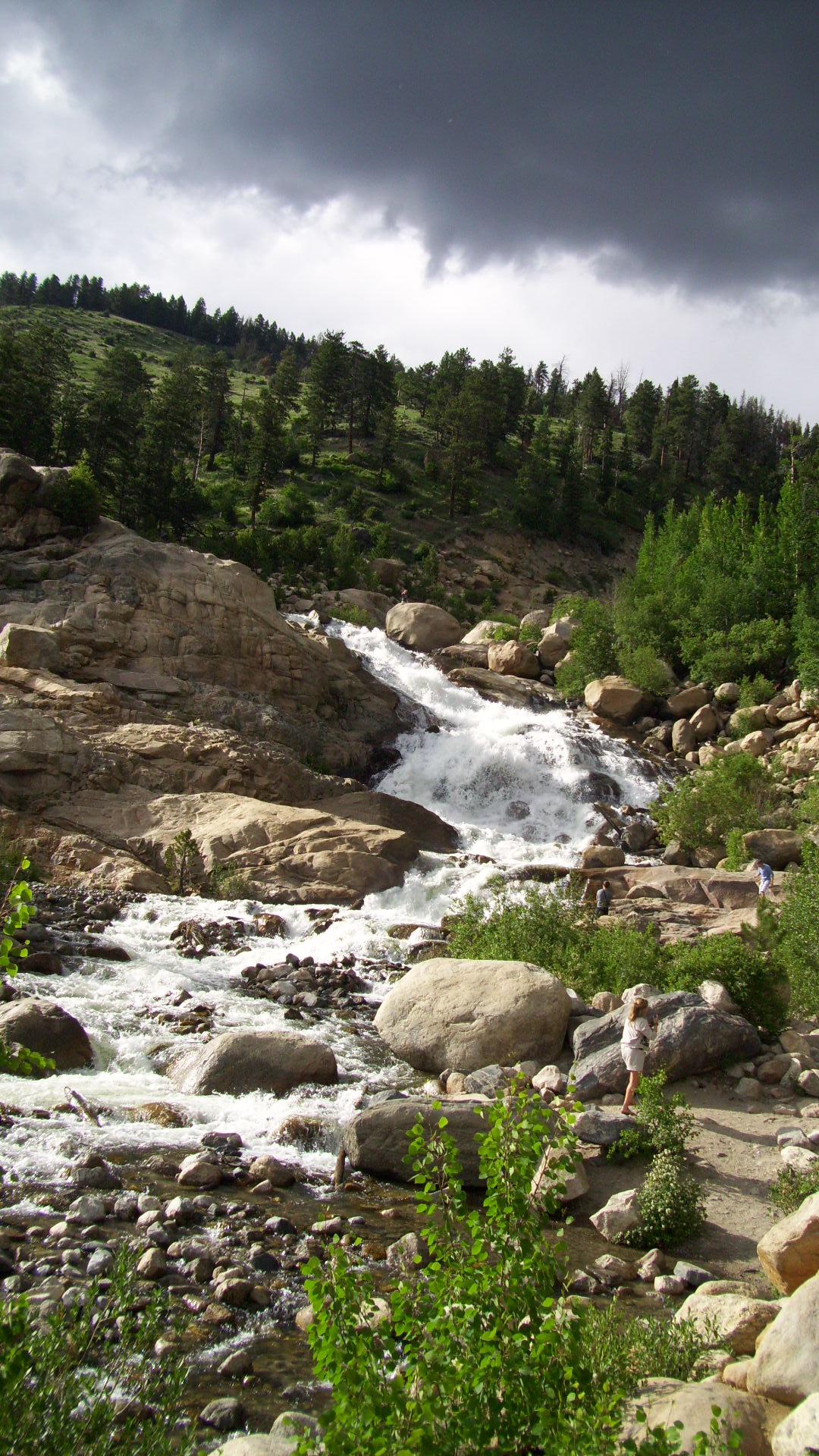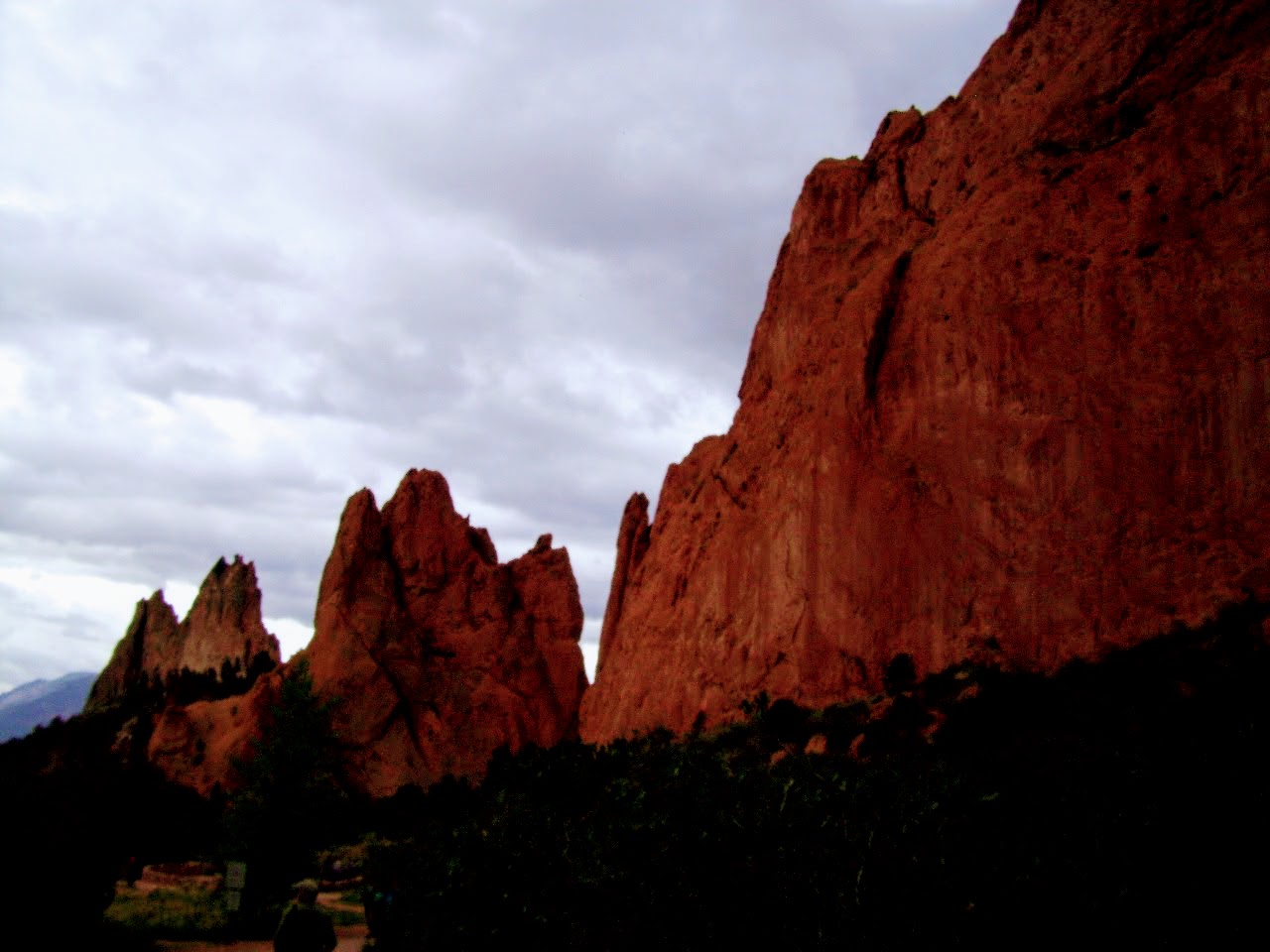Working through grief and loss
Lamentations 1: Judah has gone into exile.
Lamentations, to me, is the book of the Bible most like Job. In Job’s story we find him in a state of misery, lamenting all that has been lost. Lamentations takes us into similar unwelcome territory. The destruction of Jerusalem isn’t a tidy event. There’s a long siege that results in starvation and a descent into barbarism of the worst sort. It’s the mildest of statements to say that things get ugly. Inhumanity and misery rule. Now, Jeremiah, still reeling from it all creates poetry in an effort to describe the remaining sense of loss and grief. While it’s true that their destruction is the result of their own sin the misery of it all is real. In Lamentations the weeping prophet takes us on a walk through the rubble of his beloved Jerusalem. He replays for us the scenes of murder and rape and loss. I confess that I’m not looking forward to spending these few days with Jeremiah. Two things come to mind as I begin this journey. First: loss is a part of the human condition. Even as Job faced it, so does Jeremiah; and so do we. Second: sometimes we’re wise to allow ourselves to embrace this unwelcome aspect of life. We tend to hurry past the bad times; to smile through our tears; to cheer up believing things will get better. It really doesn’t work that way. The route to healing may begin with our taking time to grieve — to lament — all that’s been lost. Like it or not, that’s the path we follow when we walk with the weeping prophet in the book of Lamentations.
Take Away: The route to healing may begin with our taking time to grieve.
Tag: Book of Lamentations
Devotional on Lamentations
Preach responsibility
Lamentations 2: They didn’t face you with your sin so that you could repent.
As Jeremiah deconstructs the fall of Judah for us he describes the failure of the preachers of his day. Even as Jeremiah faithfully proclaimed God’s word of condemnation on the nation, his competition described coming divine rescue. Jeremiah’s message called for a radical change of attitude and lifestyle. Their message was that everything was going to be just fine, that they were children of Abraham, and therefore, God had to keep his promises to him no matter what they did. Because of their success in convincing people of their mistaken theology, Jeremiah’s message was rejected and those who needed to repent never did so. I’m not writing today to put down some radio or TV preacher. To tell the truth I don’t listen to any of them enough to even know their core message. I do believe this, though: we preachers have a responsibility before God to call sinners to repentance. If all we do is share principles for a happy marriage, or tell parents how to raise well-adjusted kids, or outline how to get along with the boss we’re failing people. I’m not saying that there’s never a time and place for such sermons, but Jeremiah says the preachers of his day didn’t confront people with their sin and therefore, they never realized their need for repentance. Does this translate over to today?
Take Away: We have a responsibility before God to call sinners to repentance.
Devotional on Lamentations
God’s love dominating even a bleak landscape
Lamentations 3: God’s loyal love couldn’t have run out.
The beautiful state of Colorado boasts over 50 “fourteeners.” These are mountain peaks that rise to heights of 14,000 feet or more. Likely the most famous of all the fourteeners is Pikes Peak. That mountain isn’t the tallest of the big ones of Colorado but it’s special because it stands alone on the eastern edge of the Rocky Mountains. Some say that on a clear day it can be seen from as far away as the Colorado-Kansas state line many miles distant. Pikes Peak comes to mind as I read the central part of Lamentations 3. Not only is it a beautiful hymn of God’s mercy and love, it rises out of the lowlands of pain and loss that dominate all else in the book. Even as Jeremiah recounts for us the devastation of the fall of Judah; even as he describes God’s anger as his judgment falls on a backslidden nation; even there, Jeremiah finds the loyal and merciful love of God. He encourages us with a vision of God’s love being recreated every morning. I’m encouraged today that right in the middle of the saddest book of the Bible, even as I walk through the desert of loss, pain, and destruction, I can look up and see a fourteener of God’s love and mercy. Even in Lamentations it isn’t “lament” that dominates the landscape: it’s God’s love.
Take Away: The love of the Lord dominates all else.
Devotional on Lamentations
Quiet Hope
Lamentations 3: It’s a good thing to quietly hope…for help from God.
In the midst of this book of laments I find the wonderful oasis in chapter three. Like a desert traveler I can’t help but to stay for a while and pitch my tent and enjoy the beauty of this place. Jeremiah has seen all the worst of life and it’s likely that he won’t live to see things get much better. Still, he’s concluded that “it’s a good thing to quietly hope” in God. I love the phrase “quietly hope.” I remember praying with an individual once about a legitimate concern in their life. However, their prayer was loud and emotional to the point that I don’t think that they managed to get much of a prayer prayed. Now, let me quickly add that I’m not against emotional prayers and I don’t want to go on record as opposing “loud” prayers either. However, the individual I prayed with wasn’t praying so much as working up some emotional state. Hopeful trust isn’t best displayed in a loud, emotional prayer. To truly hope is to calm down, to look to God, and to place things in his hands. Jesus warned against praying as though we think God will be impressed by our many words and as I visit this passage, I think Jeremiah’s making a similar statement. Without making a lot of noise, without working up our emotions, we turn our faces to heaven in quiet hope in God. Remember, Jeremiah isn’t speaking theoretically here; after all, we’re in the heart of his book of Lamentations.
Take Away: To truly hope is to calm down, to look to God, and to place things in his hands.
Devotional on Lamentations

The fine art of silence
Lamentations 3: Enter the silence.
Jeremiah advises: “When life is heavy and hard to take, go off by yourself. Enter the silence.” I don’t know much about silence. My life is filled with noise: music on the radio, something on the TV, conversation. Even when I pray, I refer to my prayer list. After all I have much to say to the Lord. I’d say my list is a pretty good one, with not only requests, but plenty of praises as well. Still, though, Jeremiah says that there’s a time for silence. The thing is that when I try to be silent before God my mind races off in a dozen directions at once. The prophet specifically says silence is good for times when life is hard and recommends our getting away from it all, not to talk to God but to experience silence before him. Many years before Jeremiah David described the “quiet waters” experience. He said it was there that the Lord restored his soul. I need to work on “entering the silence.” Maybe I need to pass through the “Lord, here’s my list” and the “when I finish here I need to do this” stages so I can arrive at the “enter the silence” stage. There’s a spiritual depth that can only be found when I “enter the silence.”
Take Away: There’s spiritual depth in silence.
Devotional on Lamentations
Surveying the devastation, with hope
Lamentations 3: The “worst” is never the worst.
On the surface the words “the ‘worst’ is never the worst” sounds pretty naive. It apparently goes along with “Cheer up, things could be worse” — just a shallow throwaway line that has no traction in a broken life. I have to remind myself of where I am and who it is giving this, seeming trite, advice. I’m standing in the midst of the rubble that was Jerusalem. Decaying bodies are in sight. The man speaking is Jeremiah, the weeping prophet. He’s the one saying, “Hang in there. You think this is the worst situation possible, but something good will rise even out of these ashes.” The prophet knows that his words won’t make sense unless he adds the reason for his surprising optimism. He continues: “Why? Because the Master won’t ever walk out and fail to return. He works severely, he also works tenderly.” The worst isn’t the worst because God doesn’t walk out, never to return; and when he returns, it’s with tender compassion. I may be traveling down an unwelcome road right now. The darkness may seem complete because it appears God has forsaken me for good. Jeremiah reminds me that it’s never that way. Even Jeremiah, who has first-hand seen the “severity” of God, is absolutely convinced of the “tenderness” of God. I need to sit at the feet of this man who can stand in the midst of devastation and declare his trust in the Master’s tender faithfulness. These are deep, and necessary truths; especially in the painful days of life.
Take Away: Trust in the Lord even in the hardest days of life.
Devotional on Lamentations

Real gold
Lamentations 4: Gold is treated like dirt.
The “gold” Jeremiah’s talking about isn’t the precious metal. He’s talking about the precious people of God. As Jerusalem lay under siege and then fell to the merciless invaders, he saw the most valuable “commodity” of all kicked aside and treated as worthless. When the devastation was finished, he saw people scavenging for a bit of food or even some kind of clothing to protect them from the elements. It was a horrible thing that Jerusalem fell. It was sad that all the valuables from the Temple were broken up and carried off as spoils of war. Worse than those things though was the devaluing of humanity. I sincerely pray that I’ll never see anything like what Jeremiah witnessed. Still, I take seriously the more general truth that’s found here: people are more important than things. I need to give thought to how that truth is demonstrated in my life. It may be as simple a thing as my dropping down on one knee to really listen to a child or it may be quite complicated, for instance, dealing with a boss who frustrates me to death but has deep hurts of his or her own. It’s good to be reminded today that its people who are true “gold.”
Take Away: People are more important than things.
Devotional on Lamentations

Looking up from the bottom
Lamentations 5: Give us a fresh start.
The prayer I find near the conclusion of this book of laments is one that has been prayed many times through the centuries. Jeremiah describes for us the devastating loss his people have suffered remarking, “Our dances have turned into dirges.” In their miserable state they exclaim, “Would that we’d never sinned!” That’s another statement that has been said many times. As some unknown preacher said, “Sin will take you farther than you want to go.” How many people have found themselves at the bottom, crushed by the consequences of their own sin? For some reason we always think we’ll be the ones to get away with it, that we’ll beat the odds. It never happens and sooner or later we add our voice to the chorus lamenting, “Would that we’d never sinned!” It’s in that place, when everything seems hopeless that we can lift our faces to the God we’ve failed and pray, “Give us a fresh start.” Our God is the God of Second Chances. Even when I’ve messed my life up to the point that all is lost he can give me a fresh start. That isn’t to say that he’ll press the rewind button on my life. What’s done is done. However, he’ll do something just as meaningful: he’ll make me into a new person. When I’m weary of my sin and crushed by my failure, I can look to the God of Second Chances and ask him to give me a fresh start. The Lord delights in answering that prayer.
Take Away: God is the God of Second Chances.
